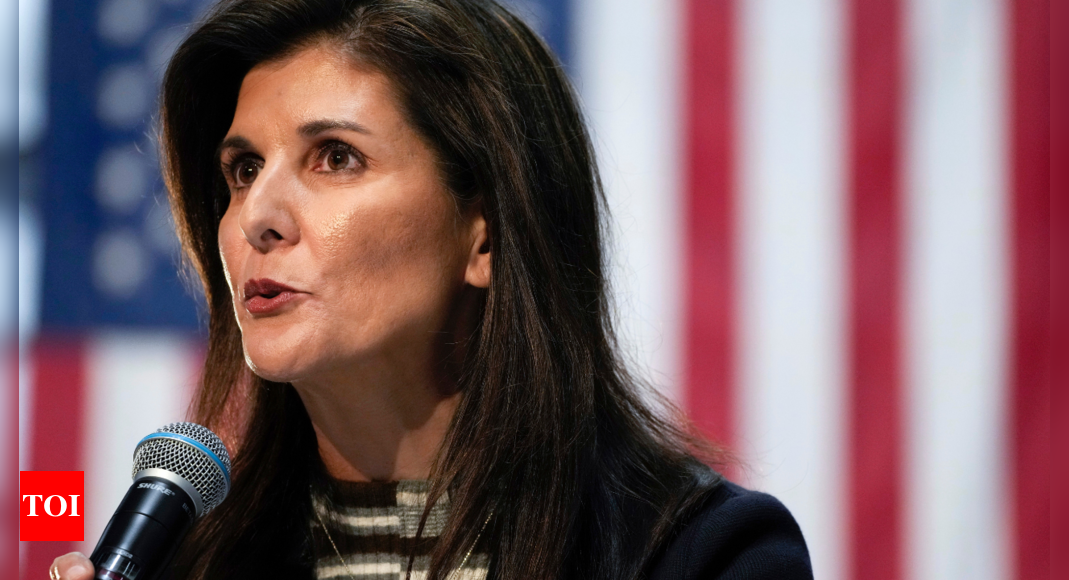Nikki Haley, the former US ambassador to the United Nations, has said that should she become president, she would consider granting a pardon to former President Donald Trump if he is convicted. She believes this action would serve the nation’s best interest. This statement is significant because Trump is currently facing numerous felony charges in Florida, New York, and Georgia. These charges are related to accusations of attempting to overturn the 2020 election results, election interference, mishandling classified documents, and making a hush money payment to an adult film actress. Haley’s position aligns her with other Republican figures like Florida governor Ron DeSantis and entrepreneur Vivek Ramaswamy, who have also indicated support for pardoning Trump. Former New Jersey governor Chris Christie has criticized Haley for her remarks, particularly because the trial in Trump’s election interference case hasn’t begun yet. Christie has also recently criticized Haley for her reluctance to acknowledge slavery as the cause of the Civil War at a campaign event and for not clearly stating whether she would decline a role in a potential second Trump administration, calling her position “insulting.” Historically, there is a precedent for offering a pardon before a conviction. President Gerald Ford pardoned former President Richard Nixon for any potential crimes committed in the Watergate scandal. On Thursday, Maine joined another US state in excluding Donald Trump from its Republican presidential primary ballot, amid a wave of legal actions questioning his eligibility to run in the 2024 presidential race. These legal challenges stem from a clause in the US Constitution that prohibits individuals who have participated in “insurrection” from holding public office. Trump and his supporters have denounced these disqualification efforts as anti-democratic and a targeted effort by political adversaries to block his return to office. Trump’s legal representatives maintain that the enforcement of Section 3 of the Constitution, which relates to this disqualification, falls solely within Congress’s purview and that it doesn’t apply to presidents. This stance was initially supported by a lower court decision in Colorado, although the state’s supreme court later reversed this ruling. Furthermore, Trump’s attorneys contest the accusation that he was involved in an insurrection. They argue that his actions on January 6 were protected under his First Amendment right to free speech. While Trump has entered a not guilty plea to criminal charges alleging his involvement in a scheme to overturn the 2020 election results, he has not faced charges specifically related to insurrection. Meanwhile, Maine on Thursday became the second US state to bar Donald Trump from a Republican presidential primary ballot, part of a flurry of legal challenges to his eligibility to run for president in 2024. The challenges are being filed under a provision in the US Constitution banning officials who have engaged in “insurrection” from holding public office. Trump and his allies have criticized disqualification cases as undemocratic and part of a conspiracy by his political rivals to keep him out of office. His lawyers have argued that only Congress can enforce Section 3 and that presidents are not subject to disqualification. Trump’s legal team also disputes that Trump engaged in insurrection, arguing that he was exercising his First Amendment right to free speech on January 6. Trump has pleaded not guilty to criminal charges accusing him of conspiring to overturn the 2020 election results but has not been charged with insurrection.
Nikki Haley Vows to Pardon Donald Trump if Elected US President

-
Uncategorized










